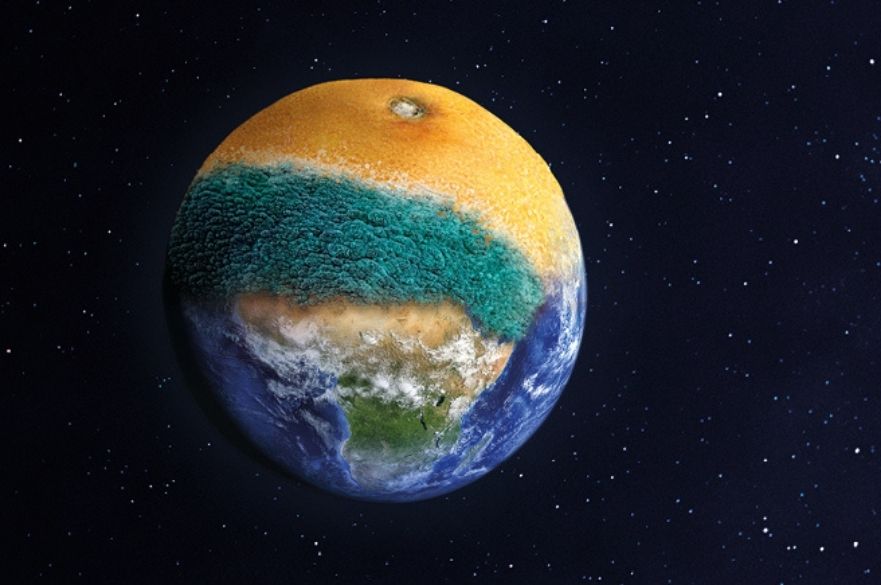Today, Monday 1st March marks the start of the first ever Food Waste Action Week led by Love Food Hate Waste. The week aims to raise awareness of the link between the food we waste in our homes and climate change.
Wasting food is one of the biggest contributors to climate change. A lot of water, land, energy, time, and transportation go into producing our food, and yet in UK homes we waste 4.5 million tonnes of edible food every year. That’s enough to make 10 million meals!
If we all stopped wasting bread at home in the UK for a year, it could do the same for greenhouse gas emissions as planting 5.3 million trees.
Luckily, there are some simple actions we can all take to keep food out of the bin, and save up to £210 every year.
As part of the week, Derby City Council are giving you the opportunity to win a Joseph Joseph® food waste caddy to help you understand just how much food you could be wasting in your home.
Once you’ve entered the competition, here are 11 simple things we can all do to stop wasted food feeding climate change:
It’s a date! ‘Use by’ is about safety – food should not be eaten after this date (even if it looks/smells fine). ‘Best before’ is about quality – although food won’t be at top quality after this date, it will still be safe to eat for some time.
Compleat. Always binning crusts and broccoli stems? Over two-thirds of the food we waste is perfectly edible, so using every edible bit of your food (‘compleating’) is essential. Try leaving the skin on when you make mashed potato – this will save you time as well!
Chill the fridge out. The average fridge temperature in UK homes is nearly 7°C, but foods will last longer if they are kept at under 5°C. Not sure how to adjust your fridge temperature? Love Food Hate Waste can help.
Perfect portions. Hands up who has ever found themselves with far too much rice or pasta? It’s easy to do, but there are simple ways to cook the perfect amount. For example, a mug filled with dry rice will cook enough for four adults.
Snap a shelfie. If you’re not a fan of shopping lists, take a picture of your fridge/cupboard shelves before you head to the shops instead. This will stop you from buying something you’ve already got at home.
Savvy storage. Most fruit and veg will stay fresher for longer in the fridge. The key exceptions are bananas and pineapple (keep these on the counter), and onions and potatoes (which should be kept in a cool, dark, dry place – like a cupboard!). Not sure where something should be stored? Try the Love Food Hate Waste Food Storage A–Z!
Freeze up to the ‘use by’ date. All foods with a ‘use by’ date, including meat, can be frozen right up to this date. This is especially helpful if your plans change at the last minute – before you order an emergency takeaway, check your fridge for anything that can be frozen for another day.
Ice-cube tray – the freezer hero. Too much milk, not enough time? Pour your remaining milk into ice-cube trays and freeze – this is the perfect amount for a brew. You can use ice-cube trays to freeze fresh herbs, too. Chop them up, pop them in the tray, and top up with oil, and then you have easy portions to add to the pan next time you’re cooking.
Use your loaf. Bread is another food that freezes beautifully. Put your sliced loaf in the freezer, and then you can pick out a slice at a time and toast straight from frozen. Extra tip: tap the loaf on the counter before you freeze it to stop the slices sticking together.
Unidentified Frozen Objects. Before you freeze your leftovers, label the bag/container telling you what’s inside and when you froze it.
It’s still not waste. If you’ve still got food waste after taking some of the steps above, you can still save the food from the bin by composting! Anyone with a brown bin can pop food waste in there to be composted. If you want to try composting at home, then check our website where we’ve got lots of composting information and advice.
Councillor Jonathan Smale, Cabinet Member for Communities, Neighbourhood and Streetpride commented:
“Climate change is a global challenge but there are so many little things we can all do to make a huge difference for our planet and our city.
During lockdown last year, we saw a huge decrease in the amount of food being thrown away across the UK which is fantastic. But, there’s always more to do to stop wasted food feeding climate change. I’ll certainly be snapping a shelfie before I head out on my next food shop!”
